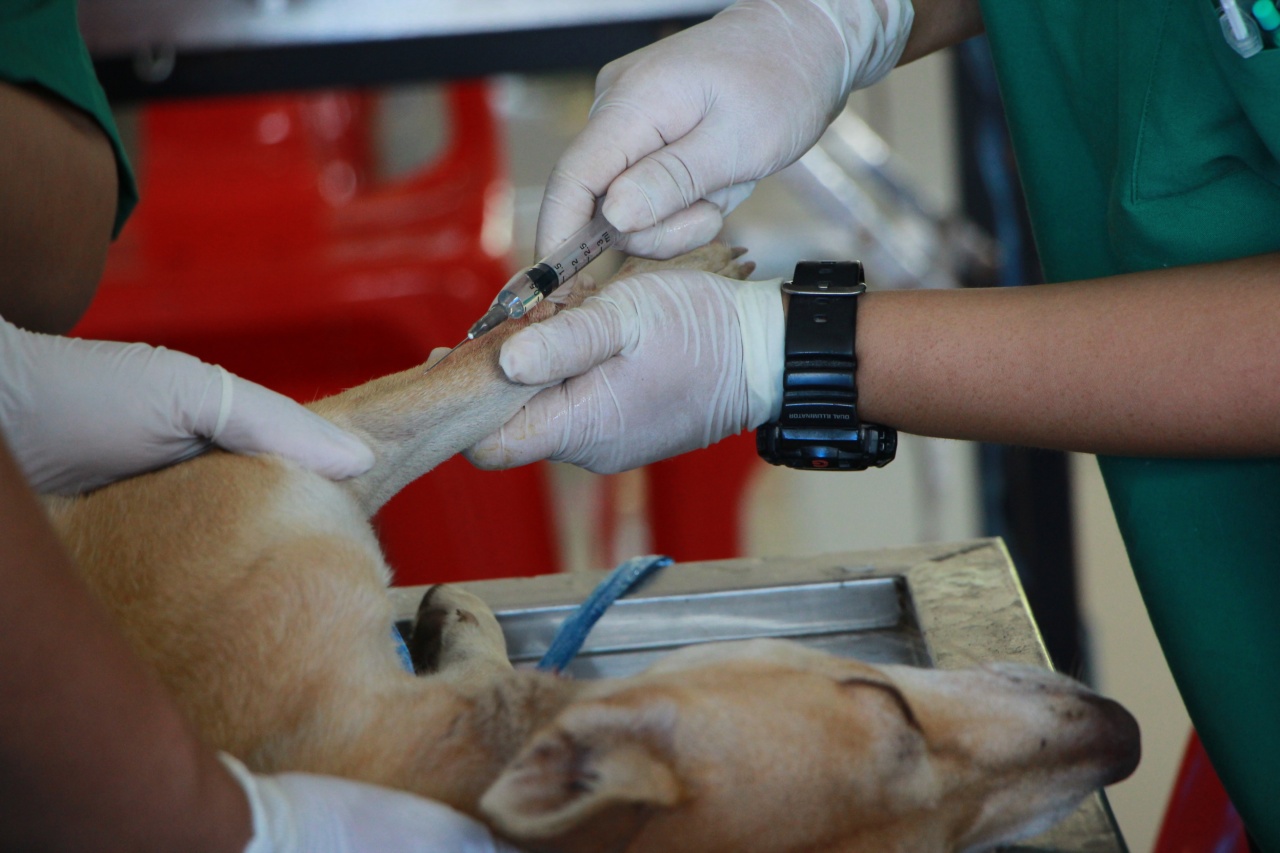As a pet owner, it is important to be able to identify if your dog is sick. Dogs, like humans, can suffer from a variety of illnesses and health issues. However, unlike humans, dogs cannot communicate their discomfort or symptoms to us verbally.
Therefore, it is essential to pay close attention to their behavior, appearance, and habits in order to recognize any signs of illness. In this article, we will discuss several key indicators that can help you determine if your furry friend is under the weather.
1. Changes in Eating Habits and Appetite
One of the first signs that your dog may be sick is a change in their eating habits and appetite. Dogs are typically enthusiastic eaters, so any significant decrease or loss of interest in their food should raise concerns.
Similarly, sudden increase in appetite, excessive begging, or weight loss without any change in activity level can also be indicative of an underlying health issue.
2. Unexplained Weight Loss or Gain
If you notice that your dog is losing or gaining weight rapidly without any obvious reason such as a change in diet or exercise routine, it could be a sign of an underlying illness.
Significant weight loss or gain can be a symptom of various health conditions, including metabolic disorders, hormonal imbalances, or gastrointestinal issues.
3. Changes in Thirst and Urination
Monitoring your dog’s water intake and urinary habits is crucial in assessing their overall health.
Excessive thirst, increased frequency of urination, or difficulty in urinating may indicate a potential health problem, such as kidney disease, urinary tract infection, or diabetes. Conversely, a sudden decrease in thirst or reduced urination can also be a cause for concern.
4. Lethargy and Lack of Energy
If your normally active and energetic dog becomes suddenly lethargic, uninterested in their usual activities, or sleeps excessively, it may be a sign that they are feeling unwell.
Lethargy can be a symptom of various illnesses, ranging from minor infections to more severe conditions like organ failure or cancer.
5. Respiratory Issues
Breathing difficulties or unusual respiratory sounds, such as wheezing, coughing, or gasping for air, should never be ignored.
These symptoms may indicate respiratory infections, allergies, heart problems, or even more serious conditions like pneumonia or lung cancer. If you notice any abnormal respiratory signs, consult a veterinarian promptly.
6. Digestive Issues
Changes in your dog’s bowel movements or the presence of digestive issues like diarrhea, constipation, vomiting, or excessive gas can all point to underlying health problems.
These symptoms could be caused by dietary indiscretion, infections, allergies, gastrointestinal diseases, or internal obstructions. Consistent or severe digestive issues require immediate veterinary attention.
7. Skin and Coat Changes
Your dog’s skin and coat condition can provide valuable insights into their overall health. Excessive shedding, hair loss, dry, flaky skin, rashes, or lumps and bumps can all indicate an underlying health issue.
Allergies, parasites, hormonal imbalances, or even certain cancers can present with skin and coat abnormalities.
8. Changes in Behavior
A shift in your dog’s behavior can be an indication that something is wrong.
If your once-friendly dog becomes aggressive or fearful, or your typically calm and well-behaved dog starts acting out or being irritable, it may be a sign of illness or discomfort. Behavioral changes can be caused by pain, neurological issues, stress, or anxiety.
9. Eye and Ear Issues
Monitoring your dog’s eyes and ears can help detect potential health problems.
Redness, excessive tearing, discharge, cloudiness, squinting, or changes in the shape or size of the eyes can all be signs of an eye infection, injury, or even a systemic disorder. Similarly, frequent scratching, head shaking, foul odor, discharge, or swelling in the ears may indicate an ear infection or other ear-related issues.
10. Persistent Coughing or Sneezing
If your dog experiences prolonged bouts of coughing or sneezing, it could be symptomatic of respiratory infections, allergies, or even more severe conditions like kennel cough or heart disease.
Persistent coughing or sneezing warrants veterinary evaluation to identify and address the underlying cause.
Conclusion
Being able to recognize if your dog is sick is essential for maintaining their health and well-being.
By paying attention to changes in eating habits and appetite, unexplained weight loss or gain, alterations in thirst and urination, lethargy and lack of energy, respiratory issues, digestive problems, skin and coat changes, shifts in behavior, eye and ear abnormalities, and persistent coughing or sneezing, you can ensure that your furry friend receives prompt veterinary care when needed. Remember, always consult with a veterinarian for a comprehensive diagnosis and appropriate treatment if you suspect your dog is unwell.






























